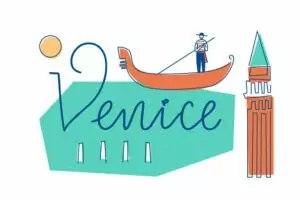Navigating the realm of polite expressions in the Italian language can be complex, especially for beginners. This article will guide you through the different ways to say “Excuse me” in Italian and its application in everyday conversation.

✅ AI Essay Writer ✅ AI Detector ✅ Plagchecker ✅ Paraphraser
✅ Summarizer ✅ Citation Generator
The Art of Apologizing in Italian
Understanding the nuances of a language goes beyond passing an Italian test. Let’s look at 5 common ways to say “excuse me” in Italian.
Mi Scusi
The formal Italian phrase “Mi Scusi” is used to get someone’s attention or apologize. Pronounced as “mee skoo-zee,” it is a phrase often used in formal settings.
- “Mi scusi, può ripetere quello che ha detto?” (Excuse me, can you repeat what you said?)
- “Mi scusi, posso fare una domanda?” (Excuse me, can I ask a question?)
- “Mi scusi, ho sbagliato strada.” (Excuse me, I took the wrong way.)
- “Mi scusi, può darmi un’indicazione?” (Excuse me, can you give me a direction?)
- “Mi scusi, sto cercando il bagno.” (Excuse me, I am looking for the bathroom.)
Chiedo Scusa
The phrase “Chiedo Scusa” is another way to seek forgiveness or asking to be excused. Pronounced as “kye-do skoo-za,” it is typically used when requesting pardon.
- “Chiedo scusa per il ritardo.” (I apologize for the delay.)
- “Chiedo scusa, non volevo offenderti.” (I apologize, I didn’t mean to offend you.)
- “Chiedo scusa, posso interrompere un momento?” (Excuse me, may I interrupt for a moment?)
- “Chiedo scusa, ho dimenticato il tuo nome.” (I apologize, I forgot your name.)
- “Chiedo scusa, dove si trova la stazione?” (Excuse me, where is the station?)
Scusa
The informal Italian word “Scusa” is a more casual way to say “excuse me.” Pronounced as “skoo-za,” it’s used among friends and acquaintances.
- “Scusa, puoi spostarti un po’?” (Excuse me, can you move a bit?)
- “Scusa, posso prendere quella sedia?” (Excuse me, can I take that chair?)
- “Scusa, hai un minuto?” (Excuse me, do you have a minute?)
- “Scusa, posso usare il tuo telefono?” (Excuse me, can I use your phone?)
- “Scusa, hai visto le mie chiavi?” (Excuse me, have you seen my keys?)
Permesso
“Permesso,” pronounced “per-mess-oh,” is used when requesting permission or seeking consent, especially when asking to pass through a crowd.
- “Permesso, posso passare?” (Excuse me, can I get through?)
- “Permesso, posso entrare?” (Excuse me, can I come in?)
- “Permesso, posso sedermi qui?” (Excuse me, can I sit here?)
- “Permesso, ho bisogno di spazio.” (Excuse me, I need some space.)
- “Permesso, mi può lasciare scendere?” (Excuse me, can you let me off?)
Sono spiacente
“Sono spiacente,” pronounced “so-no spee-ah-chen-te,” is another formal way to say “I’m sorry” or “excuse me,” typically when expressing regret.
- “Sono spiacente, ho fatto un errore.” (I’m sorry, I made a mistake.)
- “Sono spiacente, non posso venire alla festa.” (I’m sorry, I can’t come to the party.)
- “Sono spiacente, ho dimenticato il tuo compleanno.” (I’m sorry, I forgot your birthday.)
- “Sono spiacente, non ho capito la tua domanda.” (I’m sorry, I didn’t understand your question.)
- “Sono spiacente, ho perso il tuo libro.” (I’m sorry, I lost your book.)
Using “Excuse Me” in Italian Dialogues
Putting your language skills into practice is the key to mastering Italian. In this section, we’ll explore five realistic scenarios where you can use different Italian expressions for “excuse me” in daily conversation. These dialogues will help you understand the practical use of each phrase in real-life situations.
Situation 1: Asking for Directions
-Mi scusi, posso chiederle un’informazione? (Excuse me, can I ask you something?)
-Certo, come posso aiutarti? (Sure, how can I help you?)
-Sto cercando la stazione, potrebbe indicarmi la strada? (I’m looking for the station, could you show me the way?)
Situation 2: Apologizing for a Mistake
-Chiedo scusa, ho consegnato il rapporto in ritardo. (I apologize, I submitted the report late.)
-Va bene, cerca solo di non ripetere l’errore. (It’s okay, just try not to make the same mistake again.)
Situation 3: Interrupting a Conversation
-Scusa, posso interrompere un attimo? (Excuse me, can I interrupt for a moment?)
-Certo, che cosa c’è? (Sure, what is it?)
-Volevo solo dire che ho trovato la tua chiave. (I just wanted to say that I found your key.)
Situation 4: Trying to Move Through a Crowd
-Permesso, posso passare per favore? (Excuse me, can I get through, please?)
-Oh, certo, mi dispiace. (Oh, sure, I’m sorry.)
Situation 5: Expressing Regret
-Sono spiacente, ho rovesciato il tuo caffè per sbaglio. (I’m sorry, I accidentally spilled your coffee.)
-Non preoccuparti, può capitare a chiunque. (Don’t worry, it could happen to anyone.)
The Italian language is rich with words and expressions for every situation, formal or informal. Whether you’re learning the language for a vacation or preparing for an Italian test, knowing how to say “Excuse me” in different ways can truly enhance your language skills and create a more authentic interaction with Italian speakers.
You can find more Language Learning Guides in our designated category here at A*Help!
FAQ
Follow us on Reddit for more insights and updates.





Comments (0)
Welcome to A*Help comments!
We’re all about debate and discussion at A*Help.
We value the diverse opinions of users, so you may find points of view that you don’t agree with. And that’s cool. However, there are certain things we’re not OK with: attempts to manipulate our data in any way, for example, or the posting of discriminative, offensive, hateful, or disparaging material.